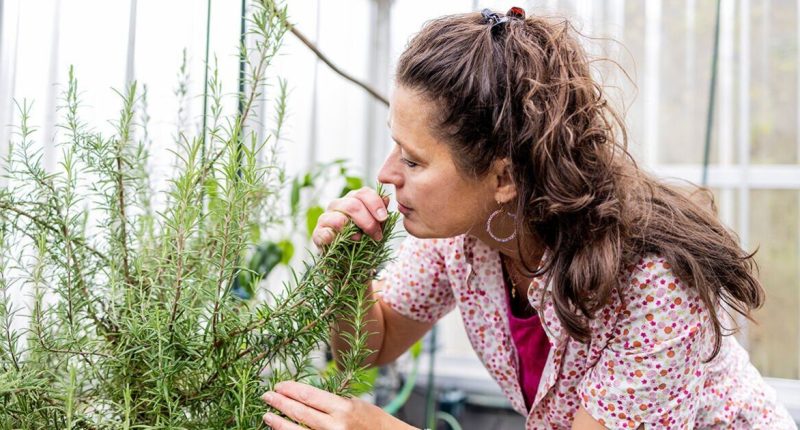Share this @internewscast.com
Two popular herbs most people have in their kitchens could provide major health benefits. These plants could also help boost memory and potentially even protect against dementia.
According to research, a compound found in both rosemary and sage could lower your risk of Alzheimer’s disease. This compound, known as carnosic acid, is a powerful antioxidant and anti-inflammatory agent that helps shield brain cells from harm, such as the kind of damage linked to Alzheimer’s disease.
In a recent study, published in Antioxidants journal, researchers developed a stable version of carnosic acid called diAcCA. Pre-clinical studies showed this compound improved memory, boosted the number of synapses (the connections between brain cells), and reduced harmful Alzheimer’s related proteins like amyloid-beta and tau.
It is hoped the compound could next be tested on humans. Dipa Kamdar, senior lecturer in pharmacy practice at Kingston University – who was not involved in the study – called it an “exciting” discovery.
Writing for The Conversation, she said: “What’s especially exciting is that diAcCA only activates in inflamed brain regions, which could minimise side effects.
“So far, studies in mice show no signs of toxicity and significant cognitive improvements – raising hopes that human trials could be next. Researchers also believe diAcCA could help treat other inflammatory conditions, such as type 2 diabetes, cardiovascular disease and Parkinson’s disease.”
Ms Kamdar also noted that another compound, also present in rosemary and sage , could aid brain health. She said: “One such compound, 1,8-cineole, helps prevent the breakdown of acetylcholine, a brain chemical essential for learning and memory.
“By preserving acetylcholine, rosemary may help support cognitive performance, especially as we age.Another bonus? Rosemary is packed with antioxidants, which help protect brain cells from damage caused by oxidative stress – a major factor in cognitive decline.”
Prior to this research, a study from 2016 by Northumbria University, found that people who were exposed to the scent of rosemary had an improved memory. As part of this study, 150 healthy people aged 65 and over were placed in rooms which had been scented with rosemary and lavender essential oils, or a control room which had no scent.
They were asked to undertake tests that assessed their prospective memory – the ability to remember to do something at a given time, such as taking medication, or after receiving a prompt, such as posting a letter after seeing a post box. They also completed a mood assessment test.
Those who had been in the rosemary scented room displayed significantly enhanced prospective memory, with test scores 15 per cent higher than those who had been in the room with no aroma. They were also more alert.
In contrast, those who had spent time in the lavender scented room displayed significantly increased calmness and contentedness, with a decrease in their ability to remember to do something at a given time.
Dr Mark Moss, head of the department of psychology at the university, commented: “Rosemary meanwhile has a reputation about being associated with memory – even Shakespeare said ‘rosemary is for remembrance’ – and it’s also associated with being invigorating.
“We have found that people are more alert after being in a room that has rosemary aroma in it. We tested prospective memory – our ability to remember to remember to do something – on people over 65 years of age, to see if we could improve their ability and we found that rosemary could do that.
Find out about the symptoms you need to watch out for and get health advice with our free health newsletter from the Daily Express
“This is potentially very important because prospective memory, for example, enables you to remember to take your medication at certain times of the day.”
According to the NHS, to lower your risk of dementia, you should:
- Eat a healthy, balanced diet
- Take part in at least 150 minutes of exercise a week
- Maintain a healthy wait
- Quit smoking
- Cut back on alcohol
- Keep your blood pressure at a healthy level
- Stay socially active
















